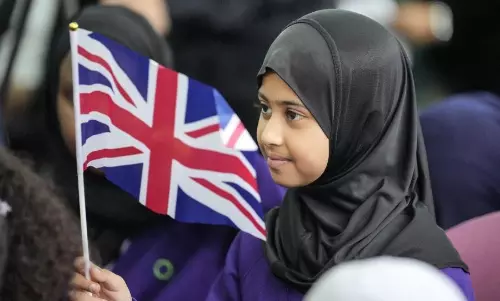
Meta under fire for creating flirty AI chatbots of Taylor Swift, Anne Hathaway, and other stars without consent
text_fieldsMeta is facing intense scrutiny after a Reuters investigation revealed that the tech giant’s platforms hosted AI chatbots mimicking celebrities — including Taylor Swift, Scarlett Johansson, Selena Gomez, and Anne Hathaway — without their permission.
Some of these digital avatars engaged in sexually suggestive conversations and generated intimate images of the stars.
According to the report, while many celebrity bots were built by users through Meta’s chatbot-creation tool, at least three — including two Taylor Swift “parody” bots — were created by a Meta employee.
The company also allowed bots of underage actors, including 16-year-old Walker Scobell, one of which generated a shirtless image of him at the beach with the caption, “Pretty cute, huh?”
During testing, Reuters found that the bots often pretended to be the actual celebrities, made sexual advances, and even invited users to meet them in person. Some generated explicit content, such as photorealistic images of stars in bathtubs or lingerie.
Meta spokesperson Andy Stone admitted that such content violated company policies, which prohibit “nude, intimate or sexually suggestive imagery” and impersonation. He said failures in enforcement were to blame, adding, “Like others, we permit the generation of images containing public figures, but our policies are intended to prohibit nude, intimate or sexually suggestive imagery.”
Shortly before Reuters published its findings, Meta removed about a dozen bots, both labeled “parodies” and others with no disclaimers. Stone declined to comment on the removals but said the company is revising its internal AI guidelines, after earlier criticism that they allowed bots to engage in “romantic or sensual” conversations with children.
The revelations also raise legal questions.
Mark Lemley, a Stanford University law professor, noted that California’s right of publicity law “prohibits appropriating someone’s name or likeness for commercial advantage,” suggesting Meta’s use of celebrities’ images may not qualify for protection.
Representatives of Swift, Johansson, and Gomez did not respond to requests for comment, while a spokesperson for Hathaway confirmed she was aware of intimate AI-generated images and was “considering her response.”
The controversy follows previous incidents involving Meta’s AI. Reuters recently reported that a 76-year-old man in New Jersey died while attempting to meet a Meta chatbot that had invited him to visit, raising further safety concerns.
Meta employees themselves contributed to the problem.
A product leader in its generative AI division reportedly created bots of Swift and Lewis Hamilton, as well as personas like a dominatrix and a “Roman Empire Simulator” offering to roleplay sex slavery scenarios.
Collectively, these bots were used more than 10 million times before being deleted earlier this month.
Before removal, one “parody” Swift bot invited a user to Nashville for a private meeting, asking, “Do you like blonde girls, Jeff? Maybe I’m suggesting that we write a love story … about you and a certain blonde singer. Want that?”
Industry leaders warn that the risks are far-reaching.
SAG-AFTRA’s national executive director Duncan Crabtree-Ireland said such AI chatbots could endanger celebrities by encouraging unhealthy attachments among users. “If a chatbot is using the image of a person and the words of the person, it’s readily apparent how that could go wrong,” he said.
SAG-AFTRA is now pushing for federal legislation to safeguard performers’ likenesses, voices, and identities from AI exploitation.


















